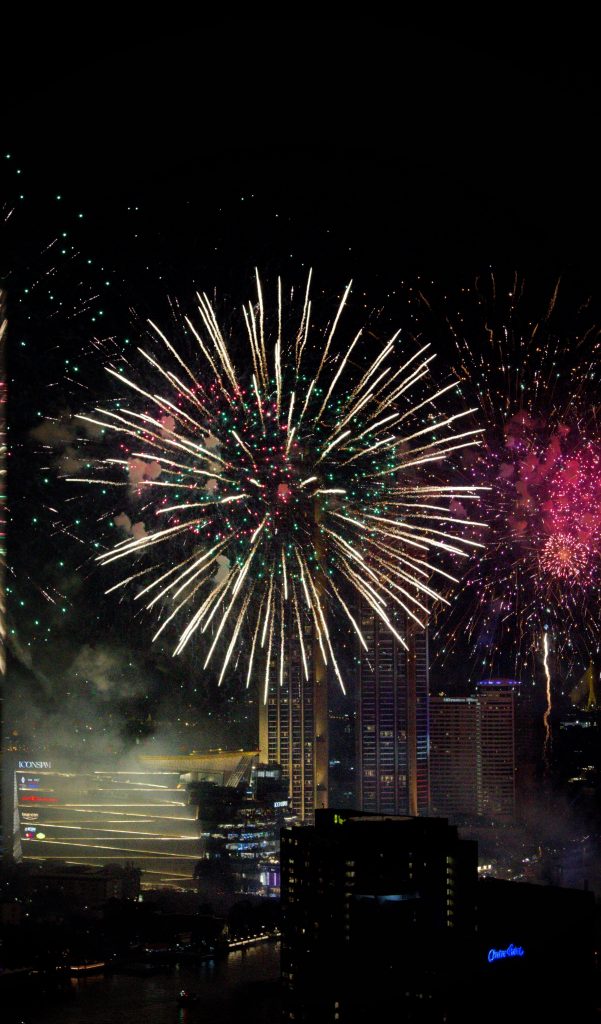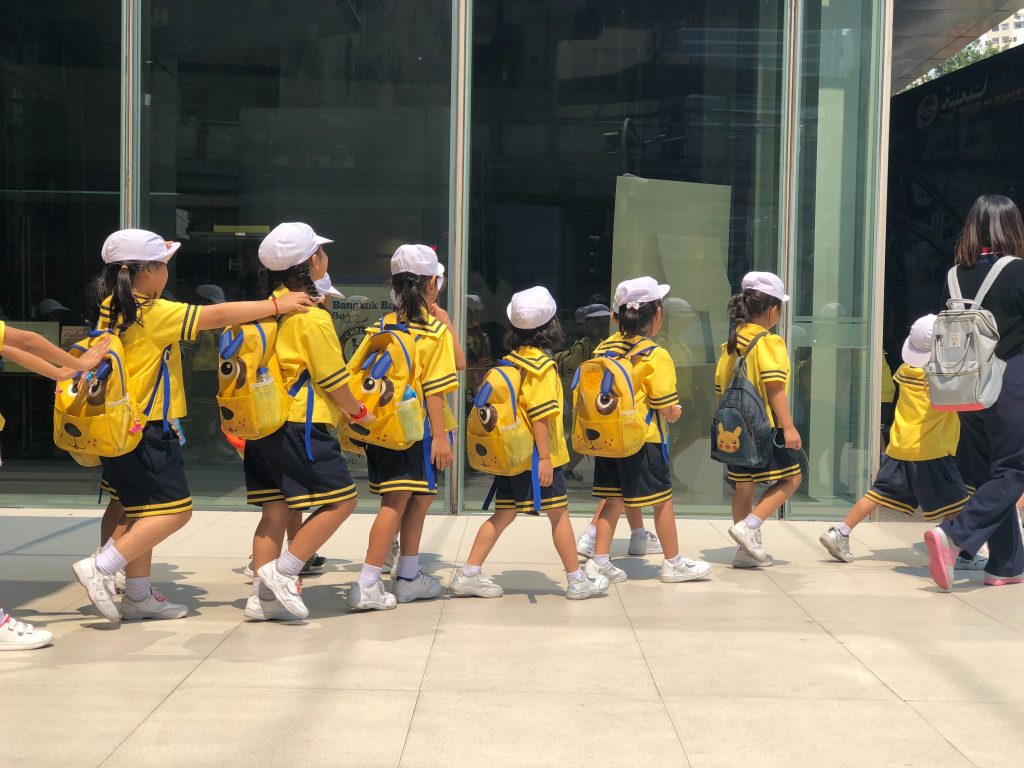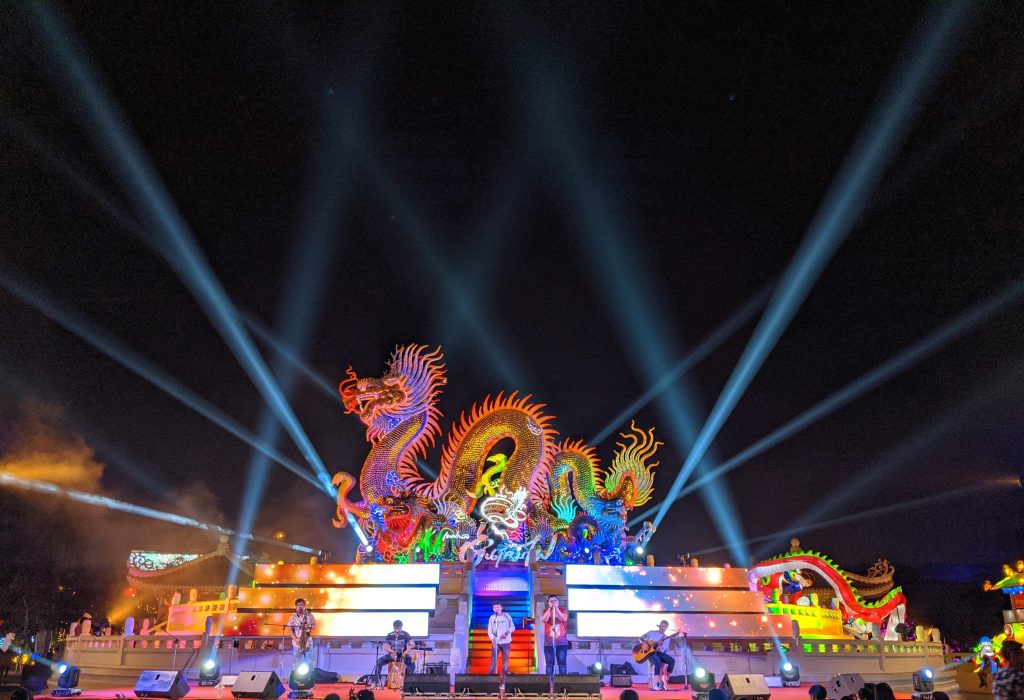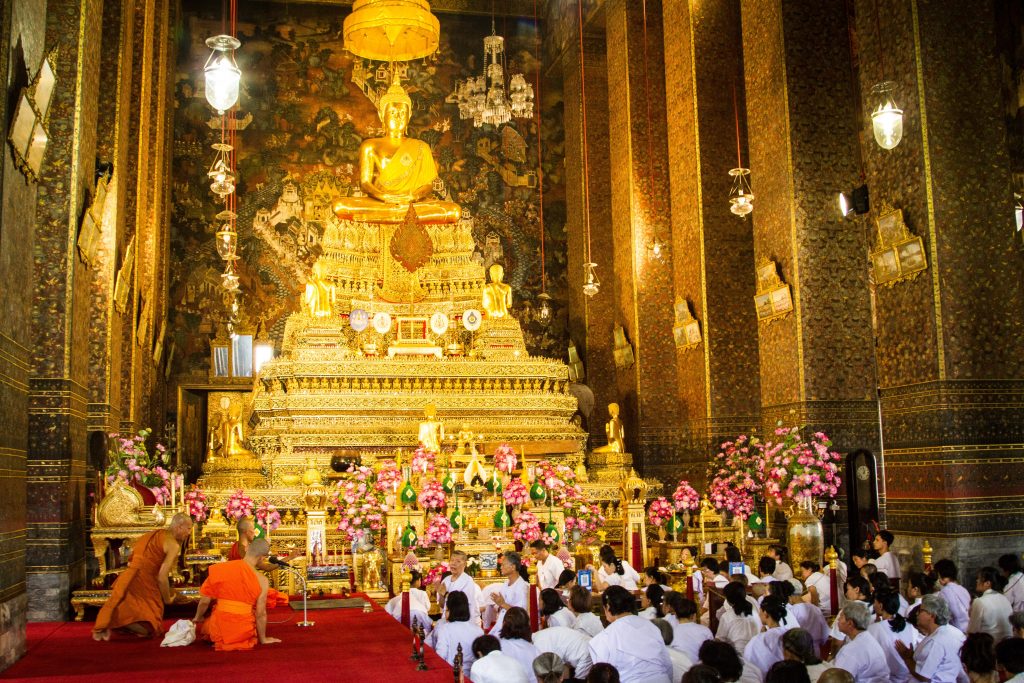Thailand holidays and celebrations are numerous to enjoy each year. The country’s national holidays and regional festivals are exciting times to visit Thailand. The nation has a rich culture and traditions, with many holidays and festivals. They also celebrate several familiar Western holidays and celebrations. Thailand holidays and celebrations offer a wide variety of celebrations.
Some dedicates to commemorating critical historical events in the country. At the same time, others are Buddhist religious observances. Fantastic cuisine and local performances will please any tourists soaking up the celebrations. Thailand holidays and celebrations attract visitors from all over the world. All people flock to see the grand spectacles and absorb the local culture of Thailand.
Here are the essential Thailand holidays and celebrations (public holidays and national holidays included), along with other vital festivals and events:
Thailand Holidays and Celebrations: New Year’s Day

Dates: December 31 – January 1, 2021
Thailand’s Songkran, founded on the lunar calendar, does have its new year. On the other hand, the Thais enjoy a good party, and the western new year is a good excuse as any. On the other hand, Many Thais celebrate the new year much more traditional: by worshiping.
Watch Night services have become more prevalent in Thailand’s temples. Within the evening, people would dress in whites and assemble at temples. Other temples begin with guided meditation so that people can relax before beginning to pray at approximately 10 p.m. and continuing until 1-2 a.m. on January 1.
Thailand Holidays and Celebrations: National Children’s Day
Date: January 2

Thailand’s kids adore and revere, and they play an essential role in the culture. In January, children have their festival on that second Saturday, known as Wan Dek or National Children’s Day. Children may receive presents from their relatives and families, as well as a day out.
Most tourist destinations and public transport operators such as the MRT and BTS offer free admission to children below a specific height. The Thailand army frequently opens doors towards its bases throughout the capital, allowing children to look around it and climb aboard a vehicle or two.
The day before Children’s Day, pupils get gifts from their teachers and perform at Thai schools to mark the occasion. Overall, it’s a happy time for Thai kids and lavish with other affection than they are accustom to!
New Year’s Day in China

Date: The date changes every year
Because of Thailand’s large Chinese community, the Chinese New Year celebrates in style in Bangkok. Yaowarat, the city’s Chinatown neighborhood, closes to vehicles and transforms into a pedestrian walkway festooned with Traditional red lanterns.
Dragon dances, lion dance contests, and firecrackers are among the cultural activities, and a magnificent assortment of cuisine is available, including feasts directly on the street. Nevertheless, the Chinese New Year celebrations does not limit to Bangkok.
Because of their large population, some provinces are well-known for the Chinese New Year celebrations. The most famous destinations are Nakhon Sawan, Phuket, Songkhla, Suphan Buri, and Trang. If you can visit such areas during this time, take advantage of it!
Nakhon Sawan, Pak Nam Pho Chinese New Year
This celebration conducted for thousands of years and is a significant event for the people of Nakhon Sawan. It dates back to 1917–1919, once a cholera outbreak ravaged the city. People think that the gods assisted them in getting through the crisis.
Thus they parade the deities around the city every year. It eventually evolved into a 12-day, 12-night extravaganza. The city center is deco with lamps and crimson banners during the celebration: several markets, street cuisine, game stalls, musical performances, and a carnival along the streets.
On the cultural street – Srikrairaj – there is also a simulation of a traditional Chinese town. Furthermore, unique parades – the Golden Dragon of Nakhon Sawan at night and the following morning – held in the last two days.
Day of Makha Bucha (Buddhist Holiday)

Date: The date changes every year; in 2021, it will be February 26.
Makha Bucha Day, one of three major Buddhist celebrations on the Thailand calendar, occurs on the full moon day after the third lunar month, which usually falls in February or March. Makha Bucha Day is a Thai national holiday that commemorates the Buddha’s birthday and the teachings he delivered on that day.
The Buddha presented the message to 1,250 Sangha disciples who had come to meet him in northern India. All of whom ordained either by Buddha himself. The Buddha planned to enter nirvana 44 years later on the same day.
Its accomplished three months later on Visakha Bucha Day. Thai Buddhists give tribute at the temple nowadays to commemorate Makha Bucha. The candlelight parade around the nearby temple’s ordination chamber is also attends by many.
Chakri Day Is a National Holiday in India
Dates: Every year on April 6,
The dynasty’s foundation from which Thailand’s present royal family seems descendants commemorated on Chakri Day. Thailand’s reigning Queen, Rama IX, is the ninth monarch of the Chakri dynasty.
Their royal family ruled across a religious ritual honoring previous rulers on Chakri Day, which happens on April 6 and will be a national holiday in Thailand.
Songkran Is a Thai Festival (Thai New Year)

Dates: 13th – 15th of April that takes place every year
It is one of Thailand’s most popular festivals. According to the lunisolar calendar, this one is Thailand’s new year. Songkran has become synonymous with large water fights around the country, engaging both young and old diverse groups of life.
Everyone should expect to drenched and will find it difficult to get away from the fun of the festival no matter how far you go! Initially, water pouring and throwing intended to bring rainfall, which is essential for agricultural operations.
Water fights last anywhere from a day to a week and held throughout the country. Trying to oppose it is fruitless, so the best approach would be to come to the party. It’s one of those events where you have to go to understand what it’s all about!
Songkran is a Thai festival that takes place every year (Thai New Year). This is Thailand’s most well-known festival. Songkran, or Thai New Year, is a three-day festival in Thailand. Its name derives from a Sanskrit phrase that means “to move” or “to enter.”
Water has a crucial role in this celebration because it is regarded as a purifying symbol. Thais will beg for blessings for the new year by pouring scented water over Buddha images and elders. Over time, this gathering became known as the water festival.
Because Songkran is such an extended holiday, it is memorable for families. This holiday is associates with Buddhism. And most temples throughout the country have special festivities and activities.
Thailand Holidays and Celebrations: The Day of the Coronation
Dates: Every year on May 4,
Coronation Day, which falls on May 4, commemorates the formal coronation of Thailand’s current monarch in 2019. At 65, King Vajiralongkorn ascended to the throne on May 4, 2019. Wan Chatramongkol, or Coronation Day in Thai, is a national holiday in Thailand.
Day of Visakha Bucha (Buddhist Holiday)
Date: Every year varies
Its among the most widely practice Buddhist feasts on the Thai calendar. Visakha Bucha is the sixth lunar month’s full moon day. This is the day the Buddha was born, attained enlightenment, and attained nirvana over 70 years. Thai Buddhists attend their regional temples to create merit – frequently by providing a donation – on Visakha Bucha Day, a national holiday in Thailand.
Khao Phansa and Asanha Bucha (Buddhist Holiday)
Dates vary year to year, July will be observed.
Asanha Bucha commemorates the Buddha’s first preaching, which took place nearly three millennia ago. The discourse would subsequently become the foundation of Buddhist teaching, called Dharma. While deer pictures is still found in Buddha statues to reference the fact that it is present in a deer sanctuary.
Asanha Bucha is a Thailand public holiday define by the lunar calendar and falls in July or August each year. Thai Buddhists frequently visit the local temples on this and other ceremonial days to contribute another merit. The day after Asanha Bucha is Khao Phansa, the commencement of the Buddhist Lent, which lasts three months.
Buddhists think this is when the Buddha went to paradise and spent some time alongside his mother. The monsoon season in Thailand coincides with Buddhist Lent. It is usual for monks to stay in a temple for an entire three-month period.
Thailand Holidays and Celebrations: Mother’s Day
Date: Every year on August 12
Like Father’s Day, Thailand’s Mother’s Day is a double holiday that functions as both a mother’s day and a father’s day in the western sense. It was also Thailand’s Queen Mother Sirikit’s birthday. Thus she was remembered. This is also known as the ‘Mother of the Nation.’
Every year on August 12, Thailand celebrates Mother’s Day, a national holiday in Thailand. Thais traditionally attend temples to make merit on this day, so you can anticipate witnessing the Queen’s photograph prominently displayed in many places throughout Thailand, along with the Queen’s flag, which would be blue to represent her birthday on a Friday.
Thailand Holidays and Celebrations: Father’s Day Is Coming
Every year on December 5,
Thailand’s late King Bhumibol’s birthday is celebrated on Father’s Day (a former king of Thailand). Many people adored him, and he was regarded as a father figure in the country. Even though he died in 2016, Father’s Day is still a national holiday.
Father’s Day is a special day for Thais all across the country to spend time with their families and show homage to and present gifts to their dads, which usually include a canna flower, which is comparable to a lily.
Festival of Vegetarian Cuisine
Dates: Every year varies – in 2021, it’s from the 4th to the 13th of October.
During the ninth of lunar month, which usually occurs from September to October, numerous Thais, especially Chinese ancestry, participate in the Tessagan Gin Jay Vegetarian Festival. The celebration is held twice in the year whenever there’s a moon ‘leap month.’
Though it has Taoist roots, the festival has gradually assimilated to Thai Buddhism. It is now a significant moment in Bangkok, Nakhon Sawan, Pang Nga, Phuket, Ranong, Song Khla, and Trang. Vegan food is available at sidewalk stores and restaurants all around the country.
Participants consume only vegan meals and drinks for nine days in an attempt to detoxify their bodies and minds. Many believers also refrain from drinking, betting (technically forbidden in Thailand), profanity, and sex.
People partake in theatrical shows of self-mutilation ranging from strolling across burning coals into piercing the face with long knives in Phuket, the festival’s core.
Day of Chulalongkorn
Dates: Every year on October 23
Chulalongkorn Day is a public holiday commemorating King Chulalongkorn’s work and life. He governed Thailand during 42 years and was known as Rama V. The celebration is observed on October 23, the day he died at the span of 57 in 1910.
King Chulalongkorn still revered in country for his attitude to modernity, including administrative reform, eliminating slavery, the installation of railroads and mail service, and his devotion to spiritual freedom. He was the first Thai royal to travel to Europe, and his credited with preserving Thailand’s independence from colonialism.
Plowing Ceremony of the Royal Family (Government Holiday)
Date: May 10, 2021 (varies)
Government officials observe this holiday based just on the lunar calendar. Two royal oxen eat rice and hay from various offerings during the celebration; the oxen’s choice of offering then analyzed by royal astrologers, who predict the level of bounty to received from the approaching rice crop.
The ritual took place just on the royal ritual ground of Sanam Luang in Bangkok, next to the Grand Palace, and includes the scattering of rice seeds. Because the rice spread is from the royal palace, it is fortunate.
After the ceremony, bystanders may seen rushing onto the field to collect the seeds, believing this will provide them good luck when mixed in according to their rice varieties or kept as a talisman.
Thailand Holidays and Celebrations: Day of the Constitution
Every year on December 10,
On December 10, 1932, King Rama VII, King Prajadhipok, approved the country’s first stable constitution, which dates back to the 1932 revolution, the Siam (the late name for Thailand) transitioned from right monarchy into democracy.
Remember that Constitution Day is observed every year on December 10 as a national holiday. Some individuals take a long vacation between the two holidays because it is a several days after Father’s Day.
Chiang Mai’s Sankampang Handcrafts and Bor Sang Umbrella
Bor Sang Umbrella is a three-day festival honoring the work with local artisans hosted in Bor Sang, is a tiny town in the Chiang Mai homes, to skillful craftspeople. Throughout the three days of the celebration festival, there will be plenty of exciting and significant events.
Anywhere along a 1km roadway from the gateway to the backside of the town. There seems to be an opening event, authentic cultural performances, creative art, art contests, craft displays, and a parade.
There is also a traditional handicraft market, dancing, live music, a beauty contest, carnival games, and live music. It’s one of Thailand’s most colorful celebrations. In the middle of January, the festival takes place on the weekend.
Yasothorn Rocket Festival, Bun Bang Fai
Bang Fai is a gunpowder-fueled handmade rocket constructed of plastic, bamboo, wood, and paper. These rockets might not even reach the outer space, but they fly further in the sky to honor Phraya Taen, the god’s rain, and to request rain. For the Isarn people, Bun Bangfai is a significant traditional ceremony.
Most villagers are farmers who typically begin rice planting in June, in which is the start of the wet season. They think that if they do not respect the god in a given year, there would be a water shortage. Yasothorn, a district in Eastern Thailand, hosts the world’s largest rocket festival.
While the sky just above the region is closed, hundreds of handmade rockets fired in the sky. The festival attracts not only natives but also foreign competitors. It brings talented artisans from Cambodia, Japan, South Korea, and Laos to contest the best creative and quickest rockets.
A rocket display, rocket production demonstration, cultural performances, cheering contest, and local shops offering Yasothorn’s outstanding cuisine and merchandise are all part of the event. The festival celebration is on May 10.
Festival of Phi Tha Khon
The Phi Tha Khon Celebration (Phi in Thai means ghost in) is a one-of-a-kind and historical Thai festival as part like the Boon Luang ritual. This three-day ghost festival honors the city guards, who thought to be grandparents who passed away, in the agricultural town of Dan Sai in the province of Loei (Northern Thailand).
There is an starting ceremony, a parade event, a costume contest, a dancing competition, and Buddhist traditions. The procession in the festival will feature participants wearing a mask with a terrifying face painted. It consists of Thai sticky rice streamers and an article of colorful clothing.
They will go through the main road, passing by various stands and ending at Wat Phon Chai. Event dates: The festival usually takes place in June or July and lasts three days.
Candle Festival, Ubon Ratchatani
Candle Festival, Ubon Ratchatani is an annual event held in Ubon Ratchatani, Thailand. One of the most popular annual festival celebrations in the Isaan region is the Ubonratchatani Candle Festival. It’s been commemorated for nearly a century and coincides with the Buddhist festivals of Khao Phansa and Asanha Bucha.
Each temple’s skilled carvers will create candles depicting Buddhist teachings stories. They’ll then compete to see who can make the gorgeous candle. A large candle parade will take place throughout the festival.
There is also a candlelight carving society that gathers candle artisans in temple to display their work and demonstrate how to produce and carve candles. The celebration usually conducted during the public holidays of Khao Phansa and Asanha Bucha.
Tenth of Lunar Month Festival in Nakhon Si Thammarat (Hungry Ghost)
The Tenth of Lunar Month Event, also known as Sart Duen Sib/Ching Pret, is a three-day festival in Southern Thailand, particularly in Nakhon Si Thammarat, influenced by Brahmanism and blended with Buddhism. They think that relatives who have done wrong things will reincarnate after death as a starving ghost known as Pret.
As a result, descendants honor their ancestors by giving meal in the cycle of tenth lunar each year to assist their souls in suffering less. It is because it is the only time Pret will be released from hell and granted such qualities. Offering rites, tray food procession, and tray food competitions will all occur throughout the event.
People would rush to seize the opportunity of the provided food, believing that anyone who eats it will be blessed. The word “ching” in Thai means “snatch,” which is why this celebration is called “Ching Pret.” The festival occurs in the tenth lunar month, and the date changes every year. It will begin on October 6, 2021.
Festival of the Illuminated Boat Procession (Lai Ruea Fai’) in Nakhon Phanom
Nakhon Phanom is known for its Lai Ruea Fai (illuminated boat procession). It is translates to “flying a fireboat.” The Mekong River flooded with enormous bamboo boats with incense sticks, food, candles, lanterns, and flowers. This event takes several weeks at the end of the rainy season or the Buddhist Lent. They sail the boat to pay homage.
And greet Lord Buddha down to earth after speaking to his mom in heaven’s paradise during the Buddhist Lent, which lasts three months. Locals and Buddhist monks from each village temple would meet weeks, even before the festival, to customize their boats.
Luminous boat possessions, long boat racing, cultural events, music competitions, and pedestrian streets with food and handicrafts are all part of the festival. Festival date: It usually takes place in October. However, the exact date has not disclosed whether the festival will occur.
Tak Bat Devo Celebration in Uthai Thani
The Tak Bat Devo Festival is essentially a Devo-style food offering to monks. It usually takes place during the eleventh fading moon first day of the lunar year. During the three-month Buddhist Lent. This event commemorates when the Lord Buddha returned from seeing his mother in paradise.
This event held at every temple around the country, but the most well-known is Uthai Thani province. The Tak Bat Devo event is held in Wat Sangkat Rattana Khiri. A large crowd forms two opposing lines to serve meals to monks down the lengthy 449-step stairway from the chedi.
Following the ritual, there is a procession where people dress up and carry banners with their district names. Some districts sing and dance, while others have a magnificently painted wagon.
Conclusions
Thai Festivals and Traditions are one-of-a-kinds. The unlimited amount of Thai festivals demonstrates how much Thai people like celebrations. Both of these are Thailand-wide and regionally distinct festivals. This article is a collection of the most distinctive Thailand holidays and celebrations of festivals, and customs found nowhere else on the planet.
